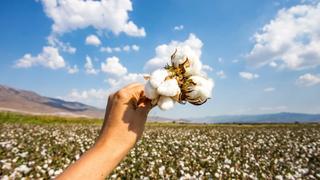India’s prospects for oilmeal exports to China have brightened after the latest measures taken by the two countries to end a six-year-old ban imposed by China in 2012.
Late last month, the Union Ministry of Commerce and Indian Embassy in Beijing decided to cover all 12 pests under the phyto-sanitary certificate to enable China’s General Administration of Quality Supervision, Inspection and Quarantine (AQSIQ) to clear Indian consignments of oilmeals.
Huge market
The resolution of the phyto-sanitary certificate issue is expected to open a huge market for India.
However, even as the Indian government takes proactive measures, a formal reconfirmation on the same is awaited from China, which is in need of alternative sources of oilmeal to feed its animals.

The phyto-sanitary certificate is issued per the requirements of the importing country, in this case China. Such certificates are issued after careful inspection and treatment of plants and plant products by technically qualified and duly authorised officers at the country of export, i.e. India.
In a statement, the Solvent Extractors’ Association of India (SEA) said: “The ongoing trade dispute between the US and China has created a lot of uncertainty, forcing China to look out to other origins for their requirements of soyabean and oilmeals. This has compelled China to re-look its ban imposed for importing of oilmeals from India since 2012.”
Prior to the ban, China imported nearly half a million tonnes of oilmeals from India, mainly rapeseed meal of 350,000-400,000 tonnes and 100,000 tonnes of soyameal.
In its monthly statement on export of oilmeals, the SEA stated that overall oilmeal exports from April to August 2018 were reported at 1,192,095 tonnes as compared to 986,606 tonnes during the same period last year, indicating a rise of 21 per cent.
According to the SEA, export of rapeseed meal sharply increased to nearly 490,232 tonnes during the period, a rise of nearly 107 per cent against the same period last year. The surge has been driven by exports to South Korea, Vietnam and Thailand.
Favourable price movement
The prices, too, have been supportive, with the currency situation creating a favourable case for oilmeal exporters.
Soyabean meal prices hovered around $406 a tonne FOB at Indian ports, against $398 in the same month last year.
Rapeseed meal prices, however, declined from $239 a tonne last year to $216 now. Castorseed meal reported a sharp rise in prices at $97 a tonne in August 2018 as against $63 in the same month last year.








Comments
Comments have to be in English, and in full sentences. They cannot be abusive or personal. Please abide by our community guidelines for posting your comments.
We have migrated to a new commenting platform. If you are already a registered user of TheHindu Businessline and logged in, you may continue to engage with our articles. If you do not have an account please register and login to post comments. Users can access their older comments by logging into their accounts on Vuukle.